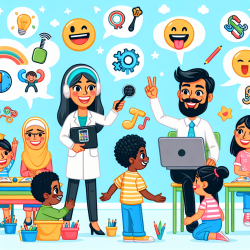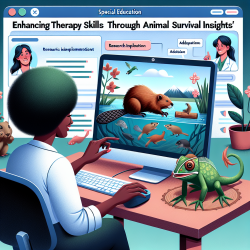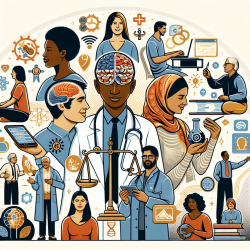Imagine stepping into an IEP (Individualized Education Program) meeting where the air is filled not with the usual tension, but with laughter and smiles. As educational psychologists, we have the power to transform these sessions from dreadfully formal to joyfully engaging. How, you ask? By infusing our tools and strategies with a touch of humor and a lot of heart, especially when it comes to speech therapy in schools.
Let's face it, the world of IEPs can sometimes feel like navigating a labyrinth designed by someone with an overly fond affection for paperwork and legalese. But what if we could sprinkle a little magic (and humor) into the mix? Here are a few ways we can start:
- Personalized Comic Strips: Who said reports have to be dull? Imagine presenting progress in speech therapy through personalized comic strips featuring the student as the superhero. It's a visual, engaging, and utterly delightful way to showcase achievements.
- Therapy Games: Gamification isn't just a buzzword; it's a pathway to engagement. Creating games that align with therapy goals can turn a routine session into an adventure. Whether it's online or in the classroom, games can provide a fun way to practice speech and language skills.
- Humorous Rewards: Reward systems work wonders, but let's add a twist. How about funny and quirky rewards that get everyone laughing? Think of a "Silly Speech Star†award or a "Marvelous Mouth Movements†medal. It's about celebrating progress with a smile.
Now, you might be thinking, "But will this approach be taken seriously?†The answer is a resounding yes. Humor doesn't diminish the importance of our work; it enhances it. It breaks down barriers, making students more receptive to learning and parents more engaged in the process. And let's not forget the joy it brings to us, the professionals, making our work all the more fulfilling.
As we navigate the challenges of providing speech therapy in schools, especially with the increasing reliance on online therapy services like TinyEYE, let's remember the power of joy. It's not just about the tools we create but how we use them to foster an environment where everyone can thrive.
So, dear educational psychologists, let's lead with laughter. Let's design our IEP meetings and therapy sessions with creativity, humor, and, most importantly, heart. After all, the most memorable learning experiences are those that bring us joy.










